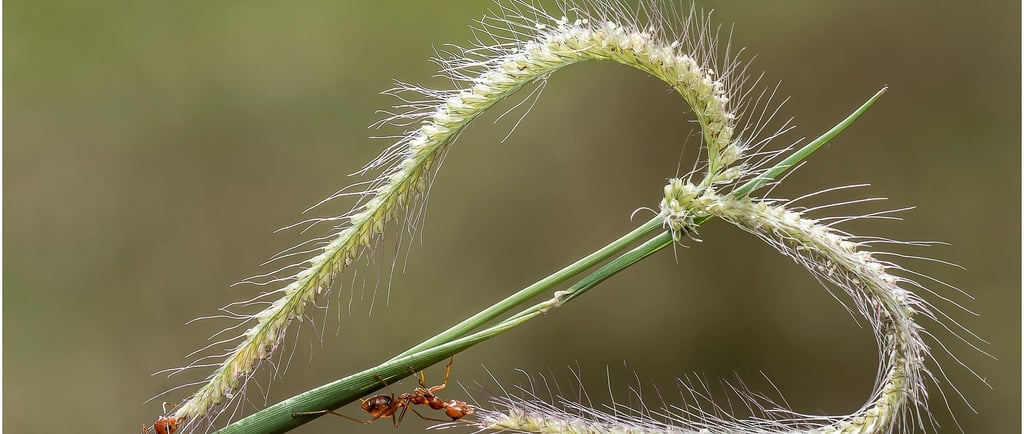We are currently selecting our 10 co-development partners
Unsung Heroes: The Role of Insects in Ecosystems
In the shadow of large mammals and majestic forests, insects play a vital, yet often underestimated, role in the functioning of ecosystems. These unsung heroes, though small, are pillars of biodiversity, sustaining life through vital processes such as pollination, decomposition, and controlling the populations of other species. This article explores the importance of insects in ecosystems and highlights their indispensable contribution to the balance of nature.
PERICOLOGYECOSYNPRAXIA
6/2/20252 min read


Insects: drivers of biodiversity
1. Pollination: a vital service
Insects, particularly bees, butterflies, and some beetles, are among the main pollinators of flowering plants. About 75% of the world's agricultural crops, such as fruits, vegetables, and nuts, depend on insect pollination for their production. This process is not limited to agriculture: it also supports the reproduction of wild plants, which form the basis of natural ecosystems . Without pollinating insects, many plant species would disappear, leading to a collapse of food chains.
2. Decomposition: Nature's Recyclers
Insects such as scavenger beetles, termites, and fly larvae play a crucial role in the decomposition of organic matter. By breaking down dead leaves, wood, or animal carcasses, they recycle essential nutrients back into the soil, enriching terrestrial ecosystems. This process supports plant growth and maintains soil fertility, an ecosystem service fundamental to life.
3. Biological control: natural guardians
Predatory insects, such as ladybugs and parasitoid wasps, regulate the populations of other insects, particularly those considered pests. For example, a ladybug can consume up to 5,000 aphids in its lifetime, reducing the need for chemical pesticides. This natural biological control helps maintain ecosystem balance and supports sustainable agriculture.
Insects in food webs
Insects are an essential food source for many species, from birds to amphibians to mammals. For example, insectivorous bats consume thousands of insects each night, helping to regulate their populations. Insects thus form a key link in food webs, connecting primary producers (plants) to higher-level consumers. Their disappearance would have cascading repercussions throughout ecosystems .
Threats to insects
Despite their importance, insect populations are declining at an alarming rate due to habitat loss, intensive pesticide use, climate change, and light pollution. Recent studies estimate that 40% of insect species are threatened with extinction, jeopardizing the ecosystem services they provide. Protecting insects is therefore crucial to maintaining ecosystem stability .
How to support insects
Preserve habitats : Maintain wild areas, such as flower meadows and hedgerows, to provide refuge for insects.
Reduce pesticides : Favor organic alternatives to protect beneficial insects.
Plant native species : Favor local plants that attract pollinators.
Raise awareness : Educate communities about the importance of insects to encourage environmentally friendly practices.
Insects, though small, are invisible giants of ecosystems . Their role in pollination, decomposition, and biological control sustains life on Earth, from food production to the health of natural ecosystems. By protecting these unsung heroes, we are investing in the resilience of our planet. Let's take action today to preserve their essential place in the web of life.
Jean Bourdin, Founder of Pericology 2025, © all rights reserved
For enthusiasts
Our links
© 2025. All rights reserved. By Pericology
Privacy Policy. 2025
Terms and Conditions. 2025
Contact :
